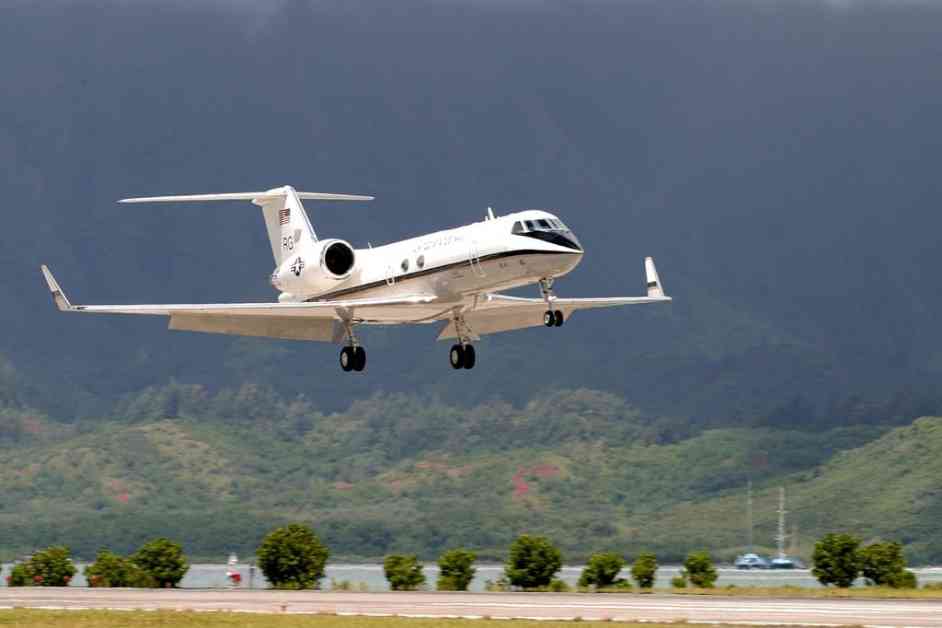Private Jet Tax Could Have Funded ScotRail Discount for the Year
A new study suggests that implementing a tax on private jets could have raised enough funds to sustain the pilot program offering discounted rail fares until the end of the new financial year. This revelation comes as the peak time fare scheme, which waived fares for certain journeys, is set to conclude this month, leading to potential fare increases of up to 94% for some travelers.
The Scottish Government, as the owner of ScotRail, reported a 6.8% increase in rail travel due to the pilot program, falling short of the 10% uptick required for the initiative to be self-financing. Oxfam Scotland’s recent paper highlighted the possibility of covering the scheme’s cost through a tax on private jets, a measure within Holyrood’s jurisdiction.
According to the study, there were 12,911 private flights in and out of Scotland in 2023, accounting for approximately 6% of the UK’s total private jet traffic. By imposing an ‘air departure tax’ on these flights, an additional £21.5 million could have been generated, based on the provided figures.
The environmental impact of private jets is a significant concern, as they are reportedly between five and 14 times more polluting per passenger than commercial flights. With 54,746 recorded private flights in Scotland since 2019, the year the Scottish Government declared a ‘climate emergency,’ the urgency to address this issue is apparent.
Edinburgh Airport alone facilitated over a quarter of take-offs and landings in 2023, emphasizing the need for sustainable aviation practices. Despite the devolution of power to tax passengers departing Scottish airports since 2017, the proposed air tax has yet to be implemented due to ongoing debates over exemptions, particularly for the Highlands and Islands.
The Subsidy Control Act (2022), enacted post-Brexit, restricts subsidies for air carriers but allows exceptions for instances benefiting society at large. The Scottish Parliament’s refusal to grant legislative consent for this act underscores the complexities surrounding aviation taxation and regulation.
Jamie Livingstone, Head of Oxfam Scotland, condemned private jets as a form of “climate vandalism,” urging authorities to take immediate action to address their environmental impact. He emphasized the need for fairer taxes on high-polluting travel modes to fund climate initiatives and deter excessive luxury consumption.
While the Scottish Government has pledged to outline the principles of Air Departure Tax (ADT) to support emissions reductions, progress on its implementation has been slow. Campaigners urge Ministers to prioritize the adoption of ADT, including specific taxes on private jets, to curb emissions and promote sustainable travel alternatives.
In addition to implementing a private jet tax, Oxfam Scotland recommends broader strategies to reduce aviation emissions and demand. Proposals include levies on frequent flyers and restrictions on short-haul flights where viable alternatives like train travel exist, given the current limitations of sustainable aviation technology.
The lack of a concrete plan to reduce flying demand in the Scottish Government’s new Aviation Strategy contrasts with recommendations from the Climate Change Committee, emphasizing the necessity of a demand management framework to achieve net zero emissions by 2045.
As the climate crisis escalates, urgent action is imperative to combat its adverse effects globally. Both the UK and Scottish Governments must prioritize sustainable policies and taxation measures to address climate inequality and foster a more environmentally conscious future for all.
In response to calls for action, a Scottish Government spokesperson acknowledged the role of Air Departure Tax in emissions reduction and emphasized the need to balance environmental concerns with the connectivity needs of remote regions like the Highlands and Islands. Plans to review tax rates and align them with net zero goals are underway, pending resolution of the exemption issue.
In conclusion, the potential for a private jet tax to fund essential public services like discounted rail fares highlights the importance of sustainable taxation policies in addressing climate change. By implementing targeted taxes on high-polluting travel modes, governments can not only raise revenue for climate initiatives but also incentivize more eco-friendly transportation choices. The urgency of these measures cannot be understated in the face of escalating climate challenges worldwide.
































